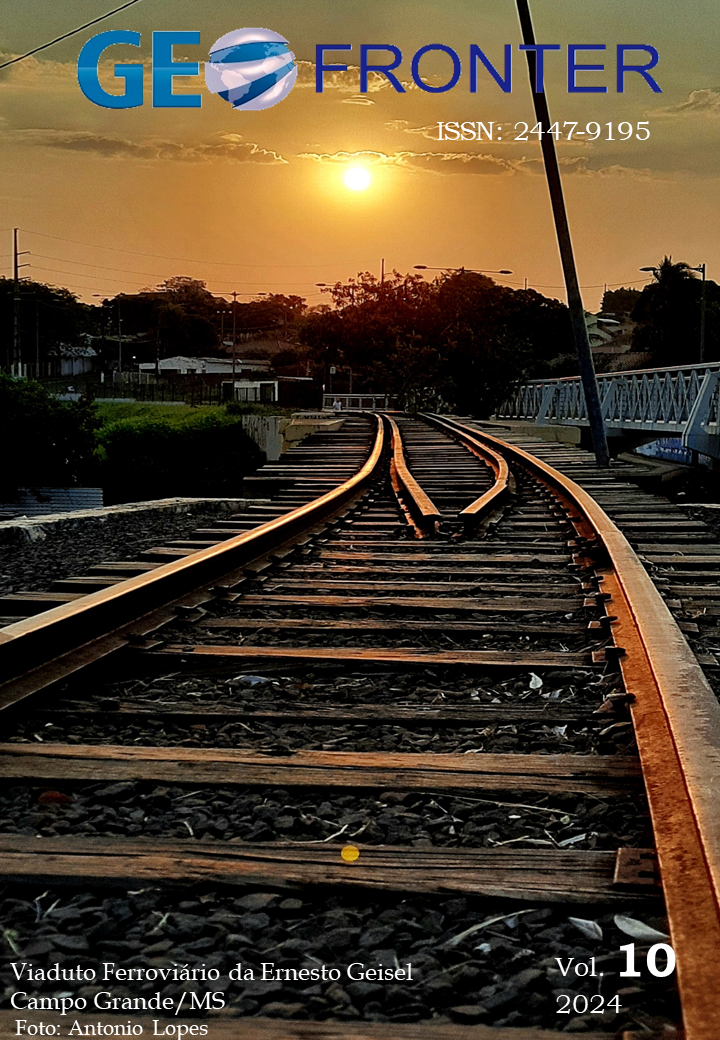TRANSFORMAÇÕES SOCIAIS E ECONÔMICAS NO BRASIL NO SÉCULO XX
da formação do mercado de trabalho às lutas por direitos trabalhistas
DOI :
https://doi.org/10.61389/geofronter.v10.8868Mots-clés :
Transformações sociais e econômicas, Trabalho escravo, Direitos trabalhistasRésumé
A história do Brasil pós-abolição revela um complexo cenário de transformações sociais e econômicas que mantiveram formas de exploração e desigualdade. A transição do trabalho escravo para o livre foi marcada pela imigração estrangeira para suprir a demanda agrícola, especialmente no Sudeste, onde a cafeicultura predominava. Contudo, a coerção extrajurídica persistiu, principalmente sob a forma de trabalho por dívida, restringindo a mobilidade dos trabalhadores. A imigração italiana foi vista como solução, enquanto trabalhadores nacionais eram marginalizados e estigmatizados, refletindo preconceitos e resquícios do sistema escravocrata. Com a industrialização e urbanização, a segregação entre trabalhadores brasileiros e estrangeiros continuou, marcada por superexploração, baixos salários e condições desumanas. A resistência trabalhista, influenciada por anarquismo e socialismo europeus, enfrentou repressão política e econômica, limitando conquistas e direitos. A Revolução de 1930 trouxe uma intervenção estatal nas organizações sindicais e relações de trabalho, visando mais ao controle social do que à promoção de direitos trabalhistas. O capitalismo no Brasil seguiu uma "modernização conservadora," mantendo desigualdades socioeconômicas e excluindo classes subalternas dos processos de mudança social. Este estudo, através de revisão bibliográfica de autores como Kowarick, Prado Jr., Dedecca e Oliveira, examina as configurações do trabalho e as lutas trabalhistas no Brasil do pós-abolição até a Constituição de 1988.
Références
ALMEIDA, Antonio A. de. Trabalho escravo: educar para libertar. In: FIGUEIRA, Ricardo R.; PRADI, A. A.; GALVÃO, E. M. (Orgs.). Trabalho escravo contemporâneo: estudos sobre ações e atores. Rio de Janeiro: Mauad X, 2017;
BALAN, Jorge. Migração e desenvolvimento capitalista no Brasil, ensaio de interpretação histórico-comparativa. In BALAN (org.). Centro e periferia no desenvolvimento brasileiro. São Paulo, DIFEL, 1974;
BARBOSA, Alexandre de Freitas. Formação do mercado de trabalho no Brasil. São Paulo. Alameda, 2008;
DEDECCA, Claúdio Salvadori. Notas sobre a Evolução do Mercado de Trabalho no Brasil. In: Revista de Economia Política, vol. 25, nº 1 (97), pp. 113-130, janeiro-março/2005; DOI: https://doi.org/10.1590/0101-35172005-1640
FAUSTO, Boris. Trabalho urbano e conflito social. São Paulo, DIFEL, 1976;
IANNI, Octavio. Condições institucionais do comportamento político operário. Revista Brasiliense, São Paulo, v. 36, p. 16-39, jul./ago. 1961;
KOWARICK, Lúcio. Trabalho e Vadiagem: a origem do trabalho livre no Brasil. 2 ed. Rio de Janeiro: Paz e Terra, 1994;
MARINGONI, Gilberto. A longa jornada dos direitos trabalhistas. Desafios do Desenvolvimento. Brasília: IPEA, 2013. Ano 10.ed. 76 – 25/02/2013. Disponível em: Acesso em: 20/09/2018.
MORSE, Richard. Formação histórica de São Paulo. São Paulo, DIFEL, 1970;
OLIVEIRA, Tiago Bernardon de. Anarquismos, sindicatos e revolução no Brasil (1906-1936). Tese de Doutorado. Programa de Pós-graduação em História da Universidade Federal Fluminense. Niterói, Rio de Janeiro, 2009;
PRADO JR. Caio. História Econômica do Brasil. São Paulo: Brasiliense, 2004;
RODRIGUES, Diego Augusto. Sindicatos no Brasil – Formação e Constitucionalismo Sindical. In: Conteúdo Jurídico. 2012. Disponível em: http://www.conteudojuridico.com.br/consulta/Artigos/29473/sindicatos-no-brasil-formacao-e-constitucionalismo-sindical. Acesso em: Janeiro de 2020.
VIANA, Sagadas; SUSSEKIND, Arnaldo; MARANHÃ, Delio. Instituições de direito do trabalho. 8 Ed. Rio de Janeiro, Freitas Bastos, 1981, v.2, pág. 958;
Téléchargements
Publiée
Comment citer
Numéro
Rubrique
Licence

Ce travail est disponible sous licence Creative Commons Attribution - Pas d'Utilisation Commerciale - Pas de Modification 4.0 International.
Os autores concedem à revista GEFRONTER os direitos autorais sobre o texto aceito para publicação. Autorizações especiais podem ser concedidas mediante aceite do editor do periódico.

